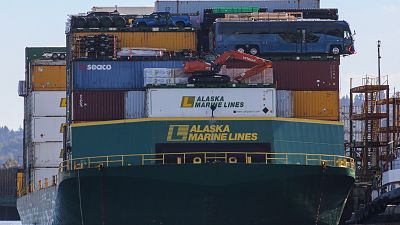Shipping
The world’s largest maritime nations are gathering in London Tuesday in a bid to strike a historic climate deal that could reshape the global shipping industry.
At the heart of the talks is a proposal to introduce a global fee on greenhouse gas emissions from ships, the first of its kind. If adopted, the measure would drive the sector away from heavy fossil fuels and toward cleaner, climate-friendly alternatives.
“We're on the brink of a major step forward in the efforts to tackle catastrophic climate change,” said Delaine McCullough, shipping program director at the Ocean Conservancy. “And it's coming from maybe an unexpected place, the International Maritime Organization.”
The proposed Net-Zero Framework would introduce a marine fuel standard that tightens over time, gradually lowering the emissions ships are allowed to produce. With maritime transport responsible for nearly 3% of global emissions and rising the need for change is urgent.
“The goal is to force the shipping industry to switch away from fossil fuels,” said Faig Abbasov, shipping director at Transport and Environment. “It also includes an economic component that can fund green fuel production.”
However, the proposal faces fierce resistance. The Trump administration has rejected the deal and warned of retaliation if nations move forward, setting the stage for a geopolitical clash over climate action.













01:16
Environment summit calls for bold action on climate and biodiversity
00:55
Al Hoceima closes schools amid severe weather in Northern Morocco
01:10
Climate emergency: Arab region temperatures soar to new highs in 2024
Go to video
Rising lake waters cause misery for people forced to live in flooded homes in Kenya
01:03
G20 leaders in South Africa adopt declaration despite US opposition
01:08
Fire forces evacuation at COP30 climate talks in Brazil